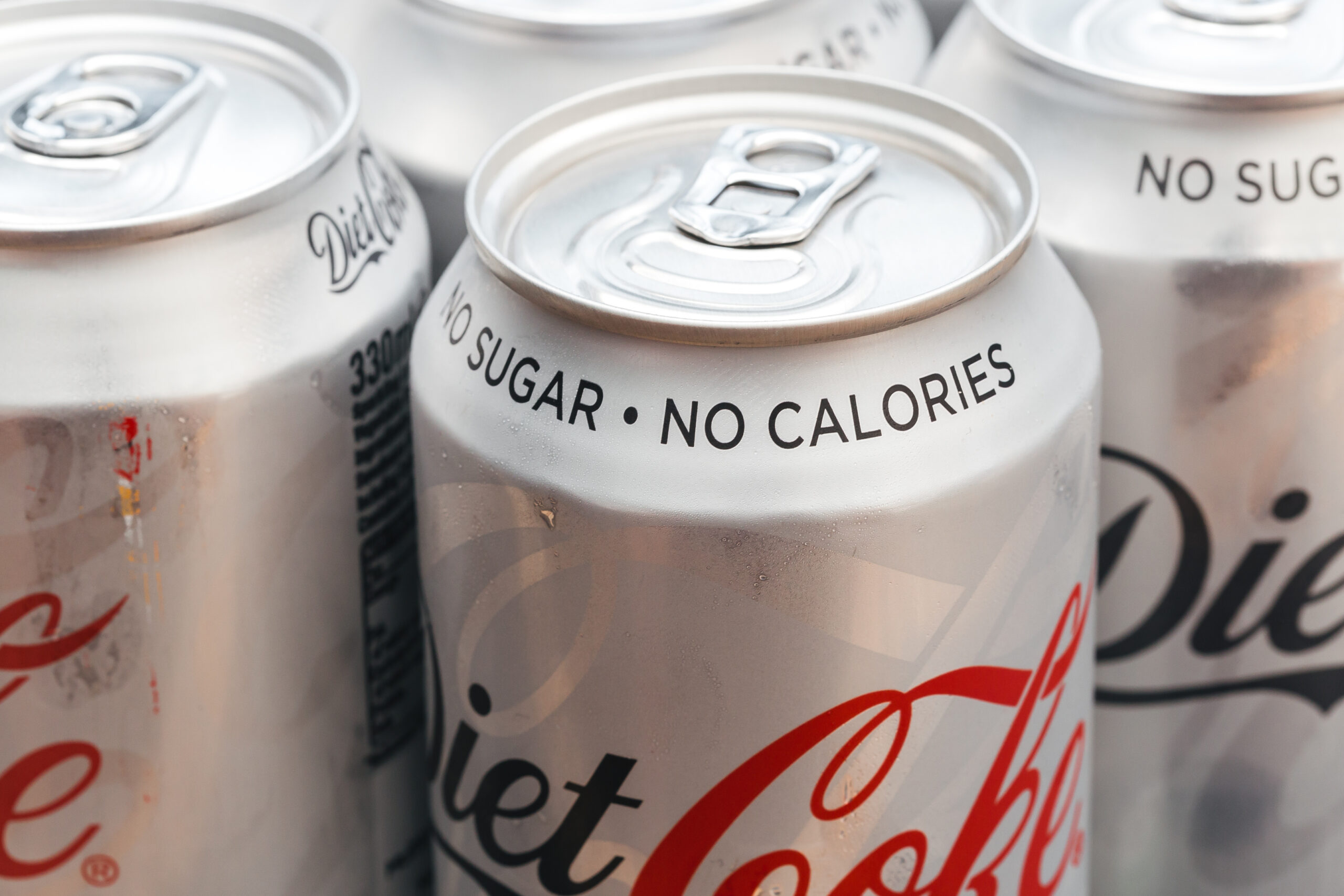Table of Contents

Daily consumption of Diet Coke may be linked to a 36% higher risk of metabolic syndrome and a shocking 67% increased risk of type 2 diabetes, despite its zero-calorie appeal.
At a Glance
- Drinking two or more artificially sweetened beverages daily is associated with increased risk of heart disease and stroke
- A large study of over 100,000 participants found artificial sweeteners linked to 9% higher risk of cardiovascular problems
- Aspartame, the primary sweetener in Diet Coke, has been linked to stroke risk specifically
- Healthier alternatives include flavored sparkling water, low-sugar kombucha, and plain water
The False Promise of Zero Calories
For decades, Diet Coke has marketed itself as the guilt-free alternative to regular soda, offering the familiar sweet taste without the calories. This appeal has made it a staple for weight-conscious consumers and those with diabetes looking to avoid sugar. However, mounting evidence suggests that the zero-calorie promise may come with hidden health costs that could outweigh the caloric benefits, particularly for those who consume these beverages regularly over extended periods.
The primary concern centers around aspartame, the artificial sweetener used in Diet Coke. Despite regulatory approvals from the FDA and other agencies that consider it safe under approved conditions, recent research has raised red flags. The World Health Organization has labeled aspartame as "possibly carcinogenic," adding to concerns about its long-term consumption effects on human health.
Cardiovascular and Metabolic Risks
One of the most concerning findings comes from a comprehensive study involving over 100,000 participants with detailed dietary analysis. The research revealed a 9% higher risk of cardiovascular problems and an 18% greater risk of stroke linked to artificial sweeteners. Aspartame specifically was associated with increased stroke risk, while other sweeteners like acesulfame potassium and sucralose were connected to higher coronary artery disease risk.
Even more alarming, consuming just one diet soda can increase the risk of atrial fibrillation (Afib), an irregular heartbeat linked to serious vascular events. The metabolic impacts are equally concerning. A significant study found daily diet soda consumption was linked to a 36% higher risk of metabolic syndrome and a 67% higher risk of type 2 diabetes compared to non-consumers, even after adjusting for confounding factors like body mass index and physical activity.
The Gut Microbiome Connection
Beyond cardiovascular concerns, emerging research suggests artificial sweeteners may disrupt the delicate balance of bacteria in our digestive system. This disruption could have far-reaching effects since gut health is increasingly linked to overall wellness, including immune function and even mental health. Scientists believe these sweeteners may alter how our bodies process glucose and respond to insulin, potentially explaining the counterintuitive link between zero-calorie beverages and metabolic disorders.
Another potential mechanism involves how artificial sweeteners affect our eating behaviors. Some research suggests these sweeteners might increase cravings for sugar-sweetened foods or disrupt the body's ability to accurately estimate energy intake, potentially leading to overconsumption elsewhere in the diet. This psychological component adds another layer to the complex relationship between diet beverages and metabolic health.
Healthier Alternatives
Health experts increasingly recommend alternatives for those looking to break the diet soda habit. Low-sugar kombucha offers probiotic benefits along with a pleasant fizz. Carbonated water with fresh citrus provides refreshment without artificial ingredients. Sparkling green tea delivers antioxidants along with gentle caffeine. Even plain water infused with fruits or herbs can satisfy the desire for a flavorful beverage without health concerns.
The research doesn't suggest that occasional consumption of diet sodas represents a significant health risk. Rather, it's the habitual, daily intake that appears most strongly linked to adverse outcomes. For the millions of Americans who start their day with Diet Coke or rely on it for an afternoon energy boost, these findings suggest it may be time to reconsider the role these beverages play in their daily routine and explore healthier options for hydration.
